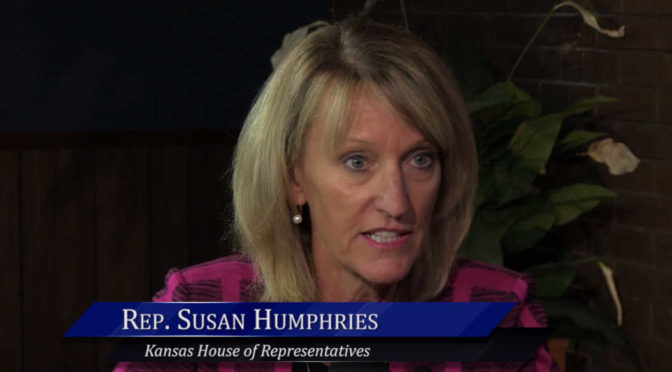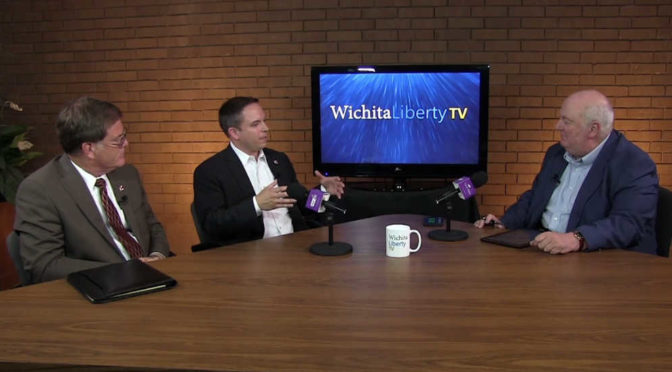Tag: Featured
-

From Pachyderm: Commission Candidates Hugh Nicks and Richard Ranzau
From the Wichita Pachyderm Club: Sedgwick County Commission candidates Richard Ranzau and Hugh Nicks. These are Republicans vying for the District 4 nomination.
-

WichitaLiberty.TV: Kansas Representative Susan Humphries
Kansas Representative Susan Humphries, a Republican who represents district 99 (east Wichita and Andover), gives an update on Kansas legislative affairs.
-

Sedgwick County jobs
Sedgwick County had fewer jobs in 2017 than in 2016.
-

WichitaLiberty.TV: Project Wichita
Project Wichita co-chairs join Bob Weeks to explain the goals and process of Project Wichita.
-

Wichita unemployment rate falls
For April 2018, the unemployment rate in the Wichita metropolitan area fell, and the number of jobs grew.
-

Wichita property tax still high on commercial property
An ongoing study reports that property taxes on commercial and industrial property in Wichita are high. In particular, taxes on commercial property in Wichita are among the highest in the nation.
-

Downtown Wichita business trends
There has been much public and private investment in Downtown Wichita. What has been the trend in business activity during this time?
-

New Kansas blog: Cold Friday
There is a new conservative blog in Kansas, Cold Friday. It describes its goal as “to provide thoughtful opinions on current events and the moral issues of the day.”
-

Kansas school standards remain high
Kansas school assessment standards remain at a high level, compared to other states. This is a welcome change from the past.
-

Wichita in ‘Best Cities for Jobs 2018’
Wichita continues to decline in economic vitality, compared to other areas.
-

What is the real problem at Wichita Southeast?
There is likely a different explanation for problems at a Wichita high schools from what we’ve been told by the school district and our newspaper.
-

From Pachyderm: Kansas Governor Dr. Jeff Colyer
From the Wichita Pachyderm Club: Kansas Governor Dr. Jeff Colyer, who is also Candidate for Kansas Governor. This is part of a series in which all major Republican candidates will speak. Recorded May 18, 2018.